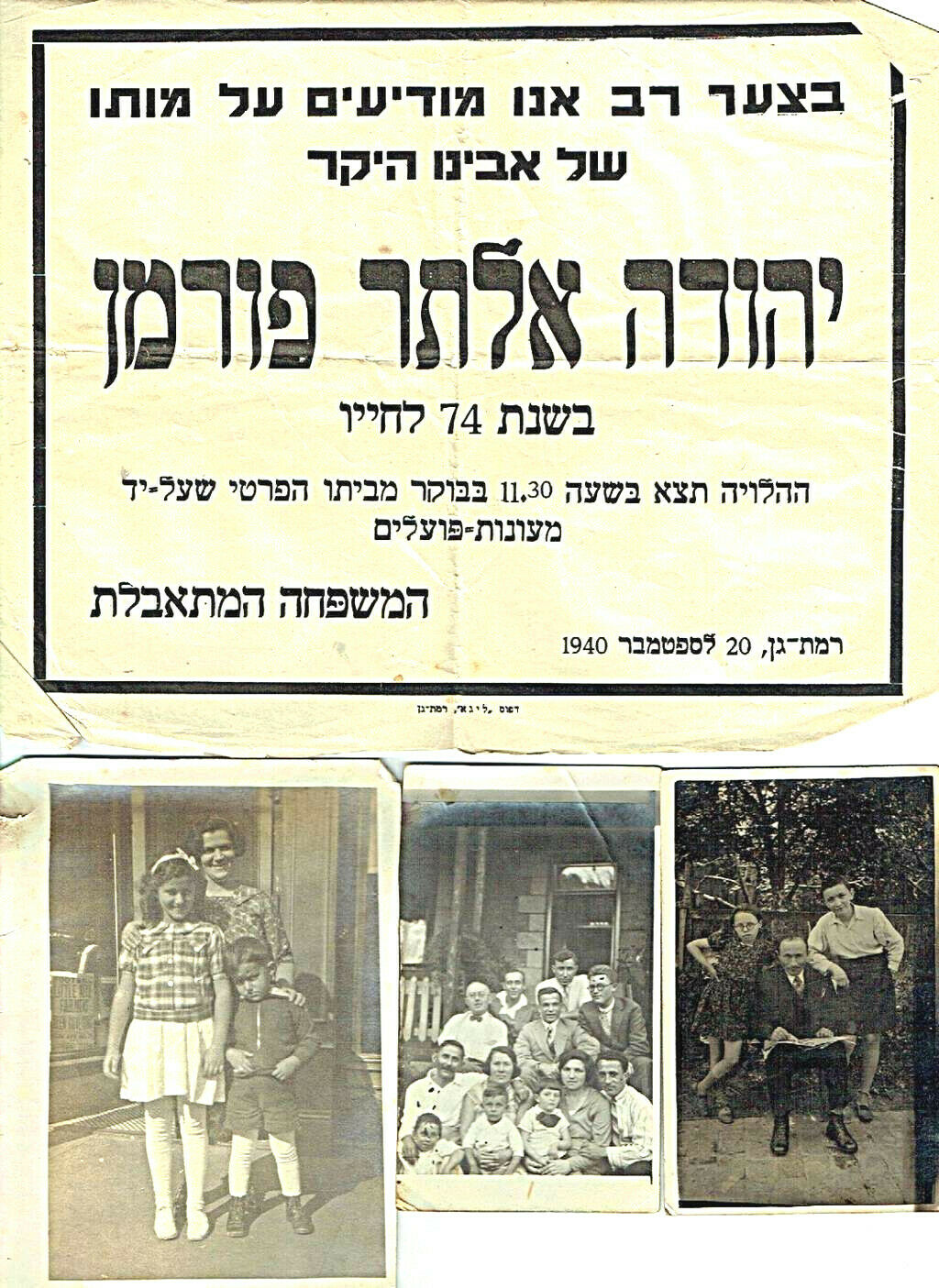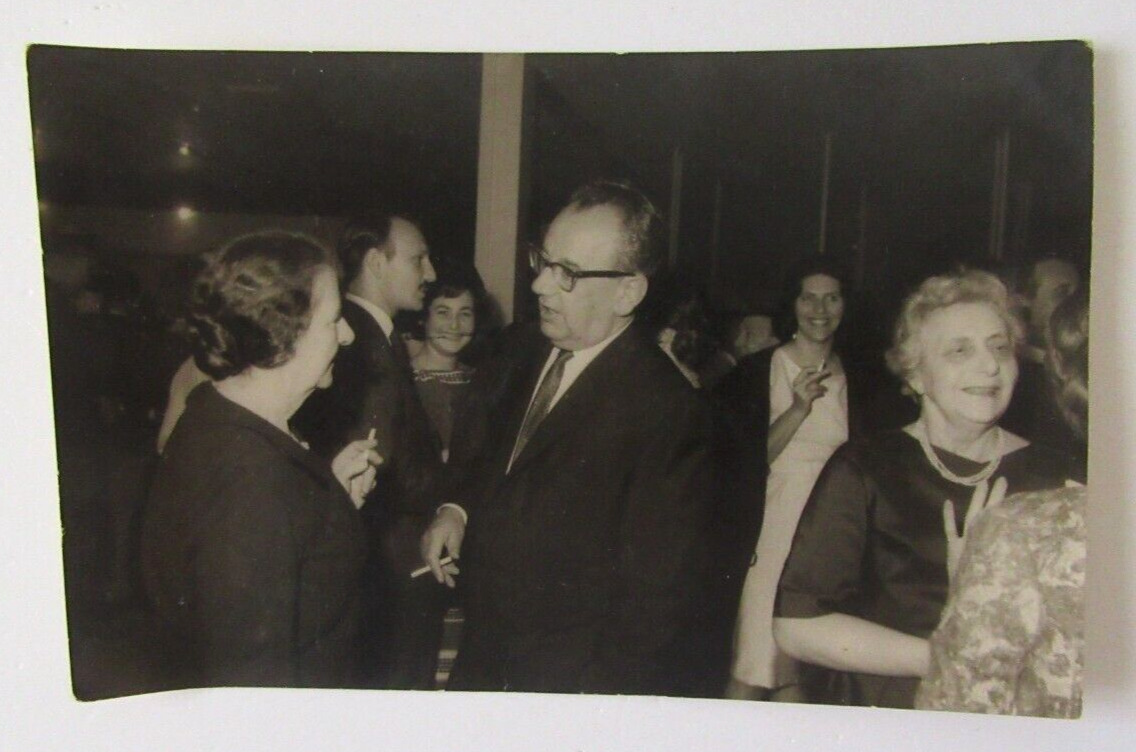-40%
1963 Israel ANASTASIA Movie FILM POSTER Hebrew INGRID BERGAMN Yul BRYNNER Jewish
$ 44.64
- Description
- Size Guide
Description
DESCRIPTION:
Here for sale is an almost 50 years old EXCEPTIONALY RARE and ORIGINAL POSTER for the ISRAEL 1963 re-release of the ANATOLE LITVAK drama film "ANASTASIA" . Starrig among others : The great INGRID BERGMAN , YUL BRYNNER and HELEN HAYES to name only a few , in the small rural town of NATHANYA in ISRAEL. The cinema-movie hall " CINEMA SHARON" , A legendary local Israeli version of "Cinema Paradiso" was printing manualy its own posters , And thus you can be certain that this surviving copy is ONE OF ITS KIND. Fully DATED 1963 . Text in HEBREW . The ISRAELI distributors of the film have given it an INTERESTING and quite archaic and amusing advertising and promoting accompany text.
The Hebrew text is somewhat archaic
. The poster also advertises "DUEL of the TITANS - ROMULUS and REMUS" with STEVE REEVES in a matinee show.
The condition is good . Folded once. Clean. GIANT size around 28" x 38" ( Not accurate ) . Printed in red and blue on white paper . ( Pls look at scan for accurate AS IS images ) Poster will be sent rolled in a special protective rigid sealed tube.
AUTHENTICITY
: This poster is guaranteed ORIGINAL from 1963 ( Fully dated ) , NOT a reprint or a recently made immitation. , It holds a life long GUARANTEE for its AUTHENTICITY and ORIGINALITY.
PAYMENTS
:
Payment method accepted : Paypal & All credit cards.
SHIPPMENT
:
SHIPP worldwide via registered airmail $ 25. Poster will be sent rolled in a special protective rigid sealed tube.
Handling around 5-10 days after payment.
Anastasia is a 1956 American historical drama film directed by Anatole Litvak for 20th Century Fox. The film stars Ingrid Bergman, Yul Brynner, and Helen Hayes. Supporting players include Akim Tamiroff, Martita Hunt, and, in a small role, Natalie Schafer. The film tells the story of a young, confused woman in 1920s France (Ingrid Bergman), who is picked up and influenced by a group of Russian expatriates, led by Yul Brynner, into passing herself off as Grand Duchess Anastasia Nikolaevna of Russia, the daughter of the murdered Tsar Nicholas II of Russia. However, the ultimate test for her is to convince the Dowager Empress, Maria Feodorovna (Helen Hayes), of her authenticity. Plot The film was loosely based on the true story of a former inmate in a German asylum who became known as 'Anna Anderson' and whose story made headlines for decades. However, the Russian monarchist movement never backed Ms. Anderson, nor did she ever meet with the Dowager Empress, played by Hayes. The script plays with the question of Anna/Anastasia's identity. Ten years of turmoil have passed since the teenage Anastasia and her sisters and brother were presumably killed. Does the refugee Anna who has turned up in Paris have the bearing, speech, and intimate knowledge of the imperial family that the real grand duchess would have? Or is she merely an apt pupil of General Bounine (Brynner), a recovering amnesiac with a striking resemblance who has been cleverly groomed by the émigré general to stake a claim to 10 million pounds left by the Tsar in an English bank? In a series of encounters with former familiars and members of the imperial court, Anna begins to display a confidence and style that astonish her skeptical interlocutors, yet retains our sympathy by seeming more interested in recovering her own identity than the imperial bank account. In a tour de force climactic meeting with the Empress in Copenhagen, Bergman and Hayes take the measure of each other, alternately projecting imperial self-possession and the anguish of family longing. Meanwhile Bounine has become increasingly jealous of the attentions the fortune-hunting Prince Paul pays to Anna. At a grand ball at which her engagement with Paul is to be announced, the Empress has a private word with Anna/Anastasia, who subsequently elopes with Bounine. While the film does not reveal whether Anna really is the Romanov princess, a series of subtle hints throughout appear to suggest that she is. The gradual realisation of her true identity is juxtaposed upon the romantic interest that develops within Bounine, who in one of his speeches declares to Anna / Anastasia that he cares for who she is and not what her name is. Hayes summons all her stage experience to deliver the celebrated last line, summing up the film's poignant exploration of identity and role-playing. Asked how she will explain the vanishing of her supposed granddaughter to a ballroom full of expectant guests, she declares, "I will tell them that the play is over, go home!" The film closes with the regal figure of the Dowager Empress on the arm of Prince Paul, descending the grand staircase. Production The movie was adapted by Guy Bolton and Arthur Laurents from the play by Bolton and Marcelle Maurette. The structure of the play can still be detected in the static settings and theatrical "scenes" of the cinematic version, which has additional, essentially decorative ball scenes. The film marked Bergman's return to Hollywood after several years working with her then-husband, Roberto Rossellini, in Italy. Anastasia won her an Academy Award for Best Actress, the second of three Oscars she would receive. The musical score from the film was also nominated for an Academy Award for Original Music Score and was popular after the film's release. The film was also a comeback for Helen Hayes, as she had suspended her career for several years due to the death of her daughter Mary, and her husband's failing health. Animated feature An animated musical version of Anastasia was made in 1997 by Fox Animation Studios; however, the stories have few similarities. See: Anastasia (1997 film). **** Anastasia is adapted from the popular stage play by Marcelle Maurette. The scene is Paris in the early 1920s. Ingrid Bergman plays a would-be suicide who is rescued by Russian expatriate Yul Brynner. Brynner's motives are far from altruistic; together with a group of Russian cohorts, he hopes to pass Bergman off as Princess Anastasia, the daughter of the late Czar Nicholas. If the conspirators are successful, they stand to collect the ten million pounds held in trust for Anastasia in the Bank of England. The biggest obstacle facing Brynner and company is the surviving Romanov empress (Helen Hayes), who must be convinced beyond a shadow of a doubt that Bergman is the genuine article. Anastasia represented Ingrid Bergman's return to Hollywood after several years' exile following her "scandalous" affair with Italian director Roberto Rossellini. ~ Hal Erickson, Rovi Anastasia (1956) The Screen: 'Anastasia'; Miss Bergman Excels in Notable Film By BOSLEY CROWTHER Published: December 14, 1956 IT is a long way round that the story of "Anastasia" has come in the course of arriving last evening on the Roxy's screen. This hypothetical drama of an actual European mystery woman who was believed by many to have been the daughter and sole survivor of the last of the Russian Czars was first a French play by Marcelle Maurette. Then it was adapted by Guy Bolton for the Broadway stage. Now it is shaped by Arthur Laurents into a romantic exercise for the screen. But it has lost nothing in passage. If anything, it has gained pictorial scope and emotional dimensions in reaching the cinematic form. For Mr. Laurents has wisely given it geographical range, added strong scenes that the play barely suggested and expanded the conflicts within the heroine. Anatole Litvak has smartly staged it for a fine projection of its human ironies. And it is played with keen sensitivity by Ingrid Bergman, Yul Brynner and Helen Hayes. This is not surprising. All of them have appropriate skills. And Mr. Litvak, of course, is no stranger to the emotional torments of fading royalty. It was his memorable French film, "Mayerling," the poignant drama of Marie Vetserra and her Habsburg prince, that set the mark for royal romance in the movies and brought Mr. Litvak to Hollywood. Now, in this tense and tender story of a woman who is literally snatched from death to be presented as the miracle survivor of the slaughter of the family of the Czar, he is dealing again with a drama that has to do with these royal chips on the human tide and wells from the deep and silent pockets of their pathetic loneliness. With shrewd perception, Mr. Laurents and Mr. Litvak have realized and exposed the three fascinating facets of the fictionalized episode. The first is sheer melodrama: a plot by Russian expatriates to present a woman as the lost Anastasia to claim a fabulous inheritance. The second is stimulating mystery: is the woman presented truly she, or is she an innocent imposter with supernatural memory? And the third is genuine human drama, touched with inevitable romance: it is the drama of intimate feelings, torn by vicissitudes. Each has been brought by Mr. Litvak into clear and exciting view, and all have been blended together into a tautly cohesive whole. The picture proceeds as one strong complex of melodrama, mystery and romance, with no one incident providing the dominant portion, as it did on the stage. While the climactic meeting of the heroine and the Dowager Empress, her supposed grandmother, is intense, it is preceded and followed by incidents of contributing excitement and strength. If the ending is slightly ambiguous and touched with a gloss of sentiment that may be generously forgiven in gratitude for what has gone before. Miss Bergman's performance as the heroine is nothing short of superb as she traces the progress of a woman from the depths of derangement and despair through a struggle with doubt and delusion to the accomplishment of courage, pride and love. It is a beautifully molded performance, worthy of an Academy Award and particularly gratifying in the light of Miss Bergman's long absence from commendable films. Miss Hayes' Dowager Empress is a sturdy, intense little dame, stubbornly realistic, yet containing a depth of sentiment. Her scene with her dubious granddaughter, which caps a sequence of excellent intrigues, is a beautiful exercise in acting. We only wish she seemed less Victorian. Mr. Brynner, as the chief of the conspirators, is best when he is browbeating the girl, displaying his Slavic perseverance, and least impressive when he is itching with love. He also appears oddly youthful for a former Russian general, some ten years out of circulation, but he sure has the vigor for the role. Martita Hunt walks away with minor honors in the amusing supporting role of a lightheaded lady-in-waiting who still acts as if she is scuttling up and down backstairs. And Akim Tamiroff as a shady Russian banker, Iyan Desny as a flabby exiled prince and Sacha Pitoeff as an unctuous conspirator are in fascinating form. The color production is splendid, and the musical score is very good. Put this one in a class with "Mayerling." It is that kind of high romantic film. Starting today, an ice show entitled "Wide Wide World Holiday" will be presented on the Roxy stage. Featured will be the Bruises, a comedy team; Miss Mae Edwards in a skating routine; the Roxyettes and Roxy Blades. The Cast ANASTASIA, screen play by Arthur Laurents; based on the play by Marcelle Maurette, as adapted by Guy Bolton; directed by Anatole Litvak and produced by Buddy Adler for Twentieth Century-Fox. At the Roxy. Anastasia . . . . . Ingrid Bergman Bounine . . . . . Yul Brynner Empress . . . . . Helen Hayes Chernov . . . . . Akim Tamiroff Baroness von Livenbaum . . . . . Martita Hunt Russian Chamberlain . . . . . Felix Aylmer Petrovin . . . . . Sacha Pitoeff Prince Paul . . . . . Ivan Desny Lissenskaia . . . . . Natalie Schafer Stepan . . . . . Gregoire Gromoff Vlados . . . . . Karel Stepanek Marusia . . . . . Ina de la Haye ebay1525












